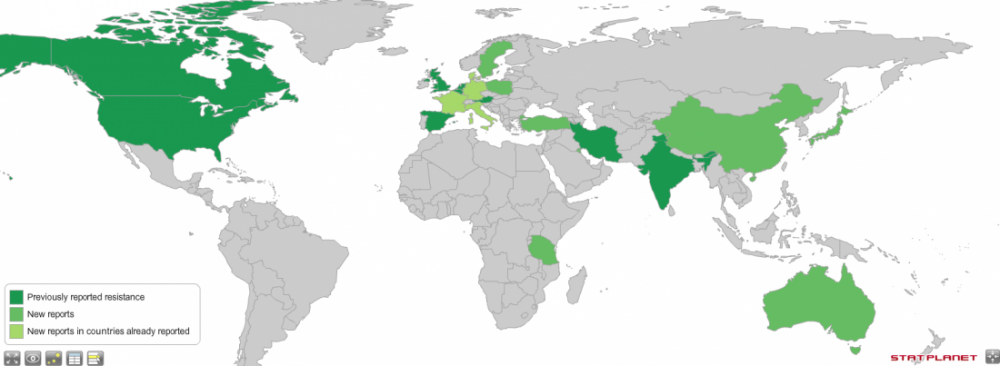In their latest UK report on Antimicrobial Resistance (AMR), Lord O’Neil and colleagues call for massive restraint in the use of both antibiotics in farmed animals and azole fungicides on crops. They call for “new classes of clinical antifungals that are developed in the future should be banned from use in food production. There might also be scope to ban certain azoles from use in non-food crop production, such as tulip production, now.”
Resistance can arise through use of fungicide azoles on many crops or clinically through patient use, especially in those with chronic and allergic aspergillosis who are taking therapy for long periods. There are multiple molecular mechanisms responsible, but 2 ‘signature’ ones related specifically to fungicide use are mutations at: TR34/L98H and TR46/Y121F/T289A.
In his report Lord O’Neill states “Azole-based therapies are the most important class of oral drugs we have to fight the infections caused by the fungus Aspergillus,” – yet in the Netherlands 7% of the isolates of Aspergillus fumigatus are now resistant. Many other countries are now reporting resistant strains, mostly with the TR34/L98H mutation.
Global emergence of Aspergillus resistance shows new reports on a country basis.

The report also calls for “greater surveillance of antifungal resistance, more research into alternatives to fungicides, and consideration as to how to minimise resistance developing from their use.” They point out that “fungicide use differs hugely between different regions, with the US using about a tenth as much as Europe. Greater research is needed to understand why Europe uses a comparatively large amount of fungicides, and to see if lessons can be learnt from their use in the US.”
O’Neill report: “Antimicrobials in Agriculture and the environment”
Article: (Stensvold 2012) Azole-Resistant Invasive Aspergillosis: Relationship to Agriculture